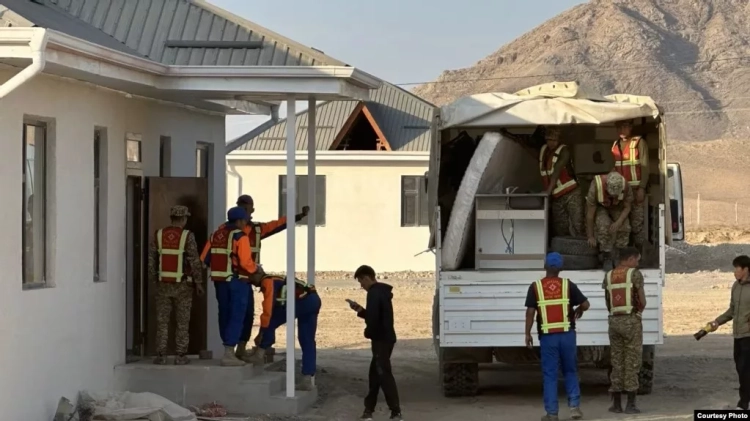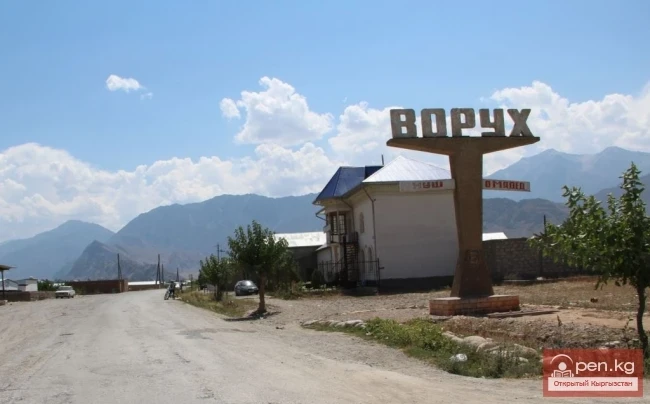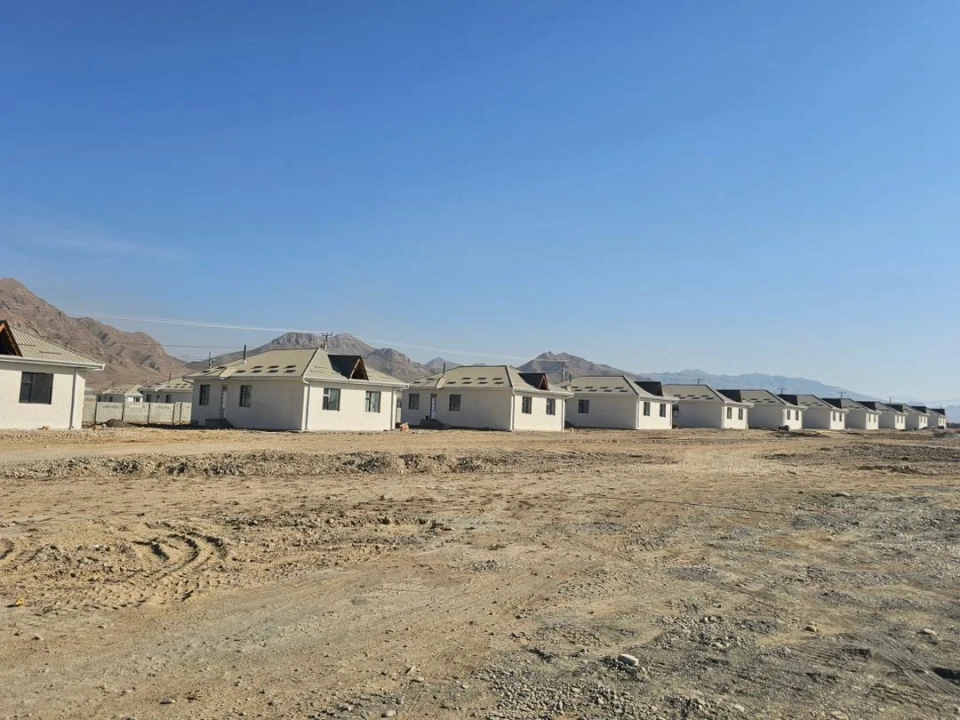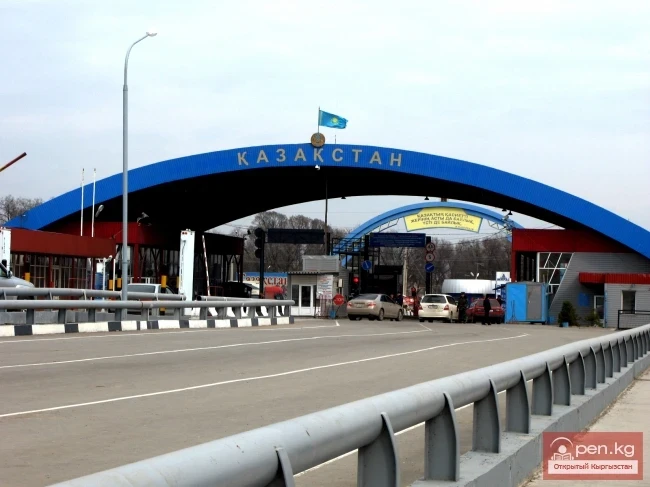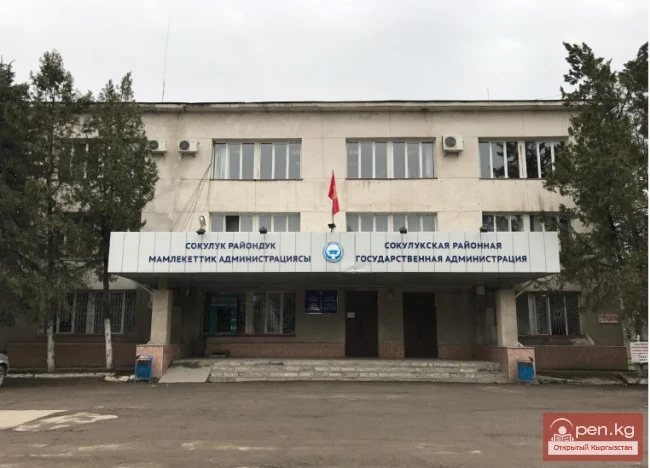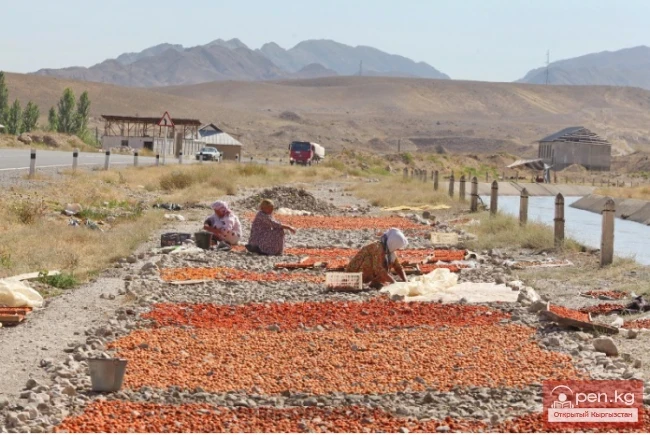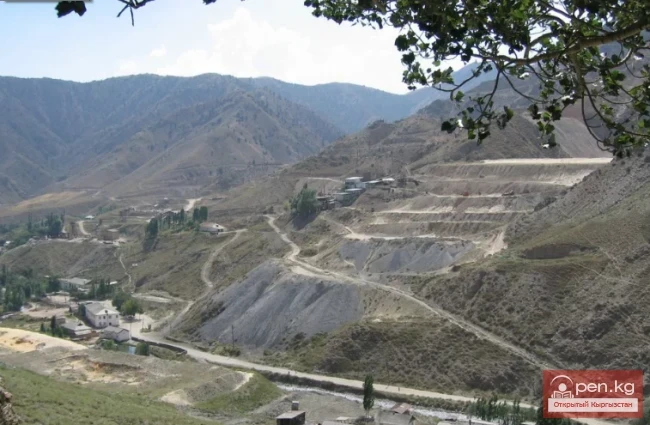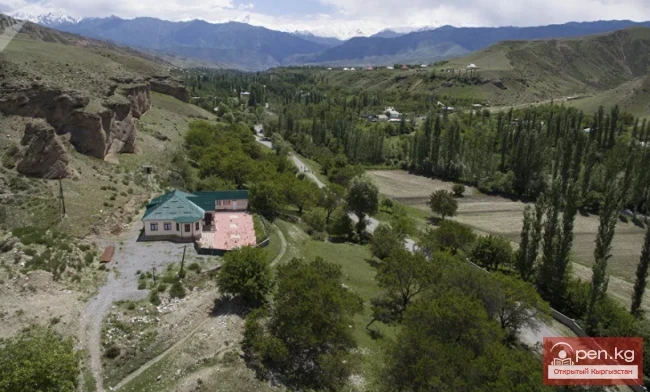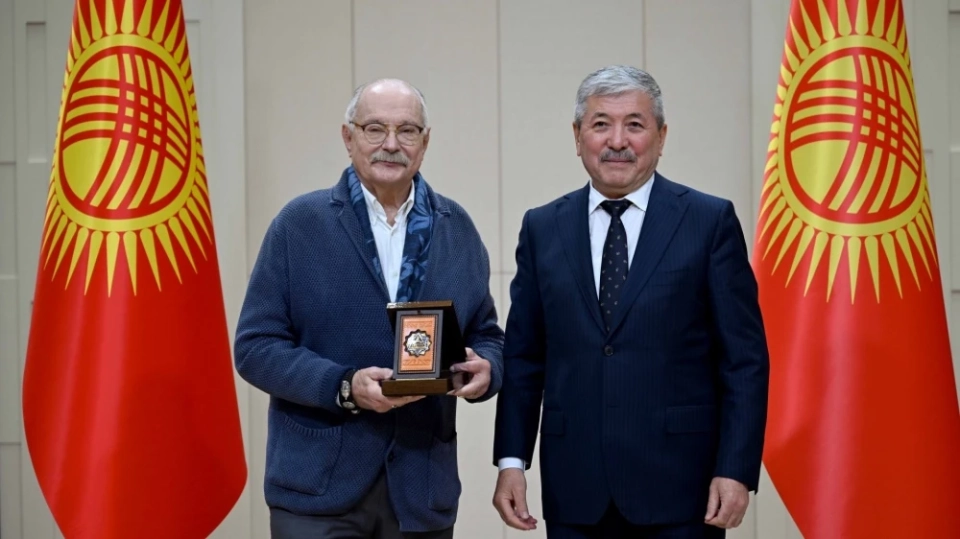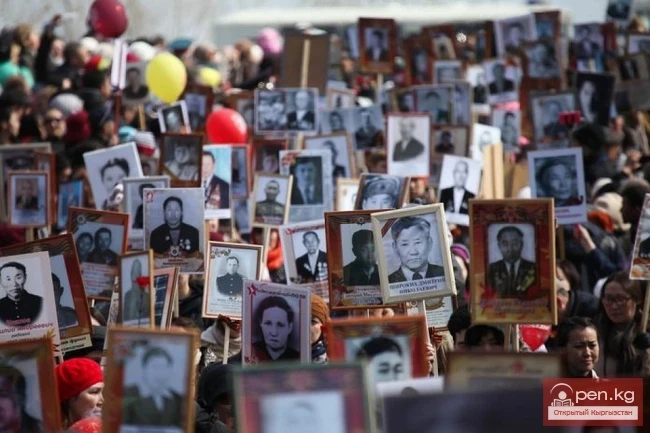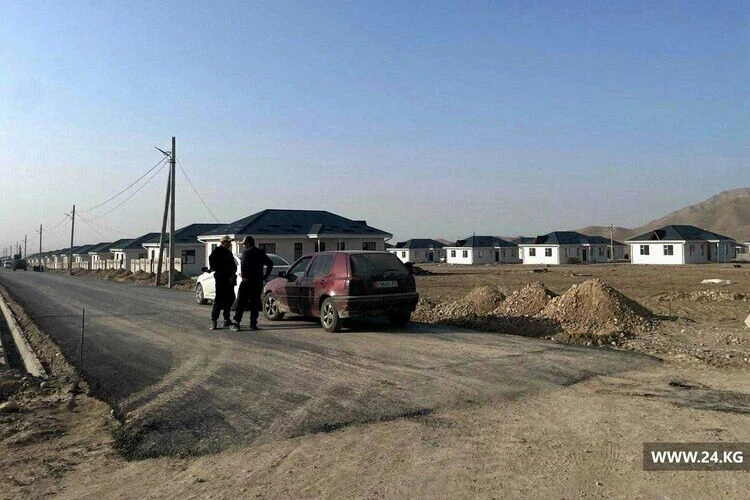
In Kyrgyzstan, within just a year, the village of Zhany Dostuk was established in the territory of the Chet-Bulak Suubashinsky ayil aimak of the Batken region, which translates to "New Friendship." This occurred after a historic agreement on the delimitation of the border between Kyrgyzstan and Tajikistan, as a result of which about two hundred families, who lost their homes, began a new life.
Mixed feelings: hope and anxiety
Local residents share directions on how to get to the new homes: "From the center of Batken, it's about 20-30 minutes towards the mountains." The road ends with asphalt, after which there is a short stretch of unpaved road, where the smell of fresh asphalt is felt, and a desert rocky landscape and mountains open up around. New houses stand ahead, like soldiers on parade, and the rumble of working excavators can be heard.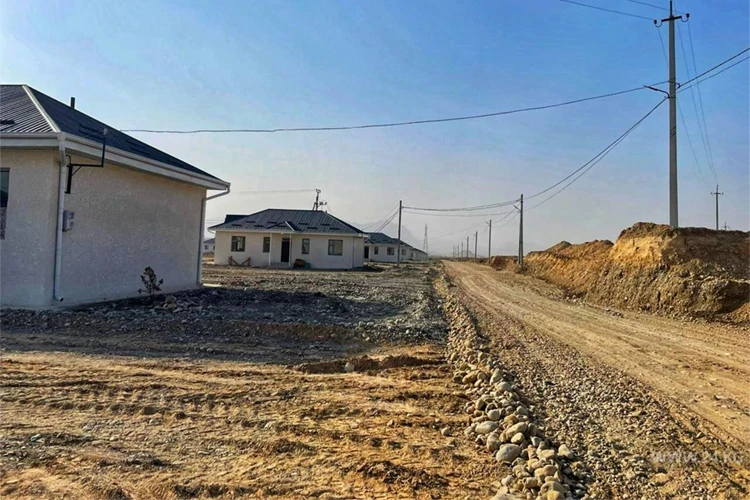
As one approaches, small details can be noticed that add coziness: someone has planted young fir trees, while someone else has surrounded rose bushes from an old garden with stones.
Meeting a Porter with a refrigerator, a boy runs out to greet him and joyfully exclaims: "Dad! We have a new refrigerator!"
This shout is simple happiness, but behind it lie months of fear and loss.
People feel a mix of hope and caution in the air. Many, upon learning of the presence of journalists, try to avoid the cameras. Their eyes are filled with the fear they have experienced and uncertainty about the new future.
Reasons for resettlement
The relocation of residents from the old village of Dostuk was a consequence of the agreement on the delimitation of the border between Kyrgyzstan and Tajikistan, signed on February 21, 2025. According to official data, the exchange was conducted "hectare for hectare": both countries transferred 1,750 hectares of land to each other. In exchange for 91 hectares of the old Dostuk, the Kyrgyz side received plots in Lakkon and Karagan-Sai, where the new village was built.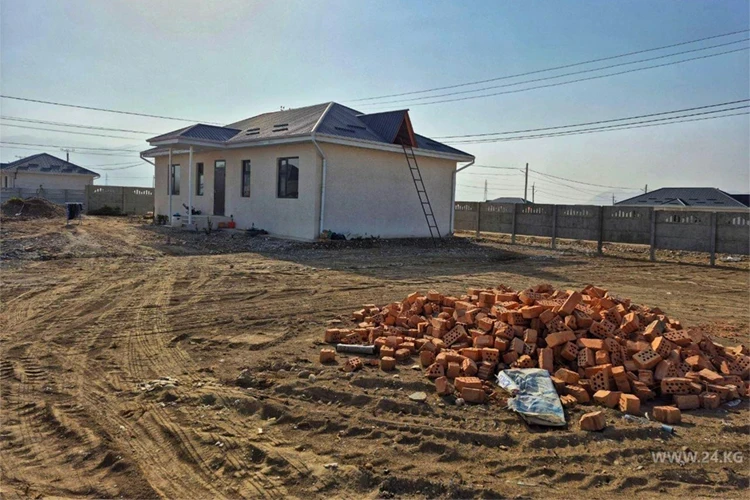
Dostuk, Tash-Tumshuk, and others. What villages Kyrgyzstan and Tajikistan exchanged
"This is an important agreement for us. We have achieved peace at the border," noted the Chairman of the State National Security Committee, Kamchybek Tashiev, presenting the parliament with a map of mutual concessions.
People and their experiences
Not all houses in Zhany Dostuk are inhabited. In those where people already live, bundles of dry firewood may lie at the doorstep.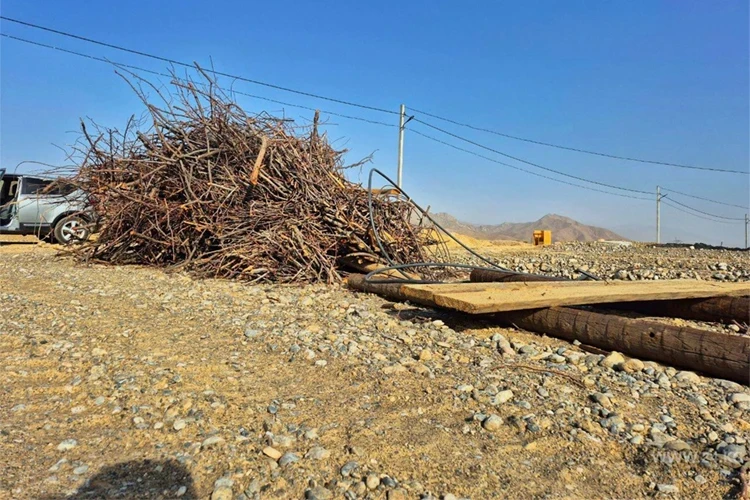
Ismatilla Jarmanov, a 60-year-old man in camouflage clothing, shares his memories: "I was born and raised in Dostuk. During the conflict in September 2022, I was there. They were shooting from 'Katyushas', drones were flying... My friends and I hid in houses, then scattered. I realized what war is." Ismatilla pauses, looking at the mountains, and adds:
Conflict at the border. Residents of seven border villages left their homes
"In the spring of 2025, the authorities announced the relocation to a safer place and offered to choose from several villages. My house in Dostuk was built in the 1990s. In Zhany Dostuk, the new houses are three-room, with all necessary conditions. But I hope that the compensations will not be delayed. We need to build a new life: arrange the plot, buy coal for the winter. Many have large families, it is not easy for them. I live alone, while my family is in Bishkek, I work in the Border Troops."
"I took roses and fir trees from the old house"
It turned out to be more difficult to talk to the women. One of them, a mother of five children, barely holds back tears as she recalls how they escaped from the shelling:"When the conflict started, we were sleeping. The gunshots woke us up. We grabbed the children, didn't even have time to put on shoes, and rushed to the car, everyone was crying. I don't remember how we ended up at relatives' in Bishkek. A month later, we returned and saw that nothing was left of the house; it had burned down. We had to rent a place in Batken for a year. On October 31, we said goodbye to the old houses, closed the border, and read the Quran. Everyone was crying."
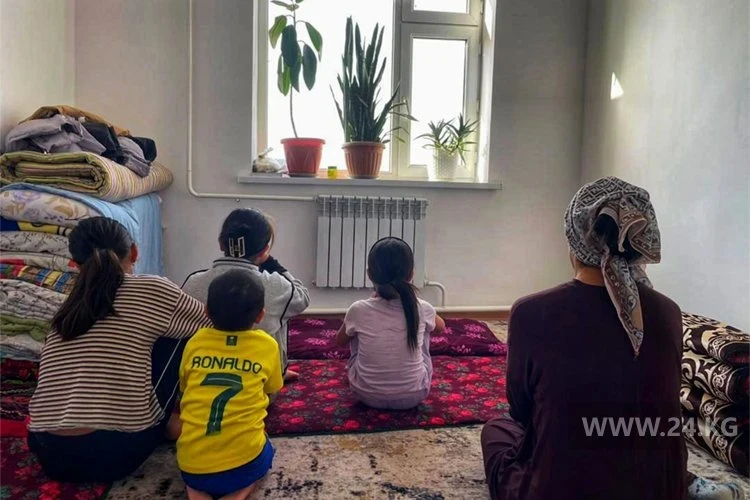
The woman averts her gaze, wiping away a tear, and sadly adds: "I took roses and fir trees from the old house. We had a large garden and vegetable patch, many flowers. We do not complain. The main thing is that we are alive. Glory to the Almighty."
She is originally from Samarkandek, married in Dostuk. They had a two-story house, where 10 people lived: her husband's parents, a brother, she with her husband, and five children. The family earned from trade with Tajiks and the harvest of apricots. The harvest was gathered, but they did not have time to sell it.
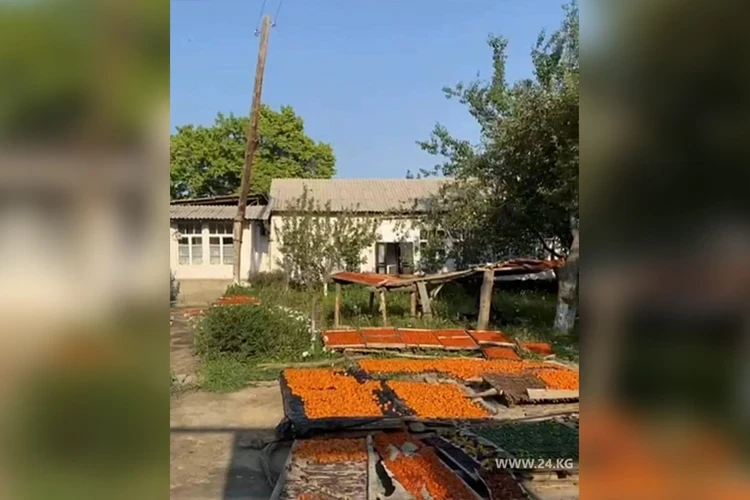
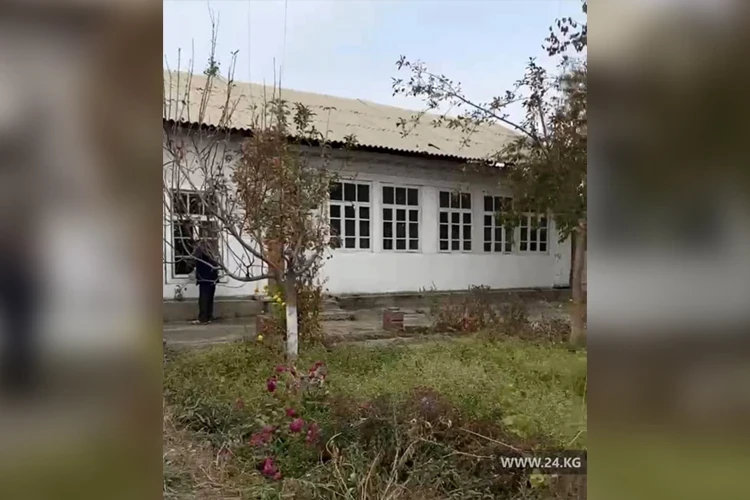
"The eldest son entered the Law Academy this year. Three more children are studying in school — in the 4th, 6th, and 9th grades. The youngest is four years old. We are left without work, my husband started taxiing in Batken, and I used to work in a kindergarten, now I sit at home," shares the villager.
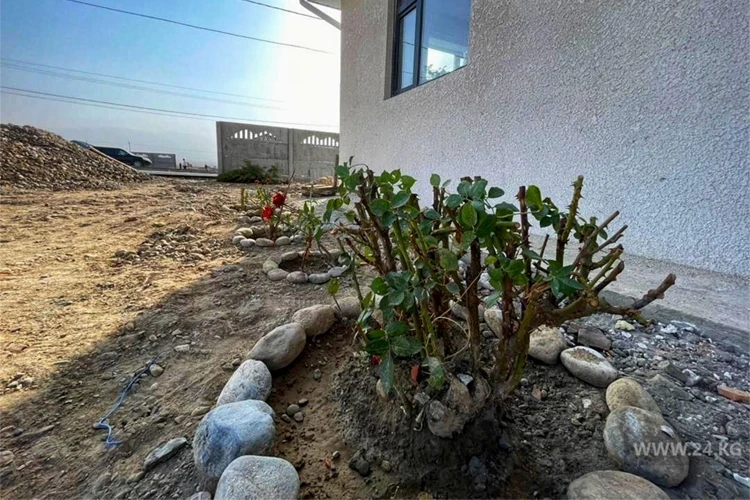
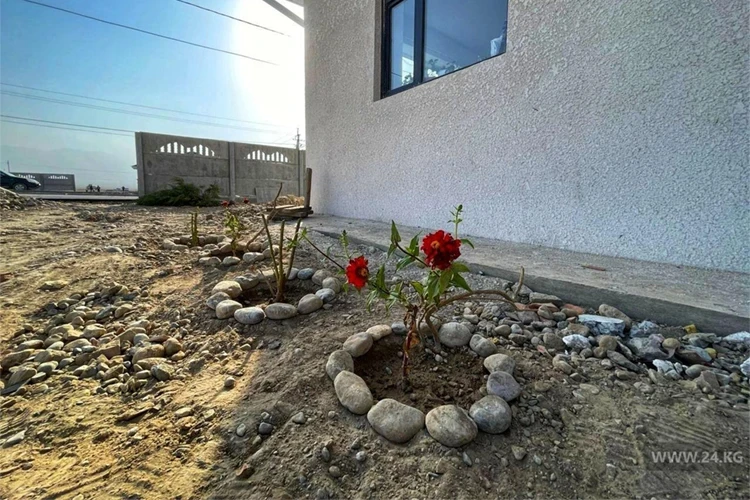
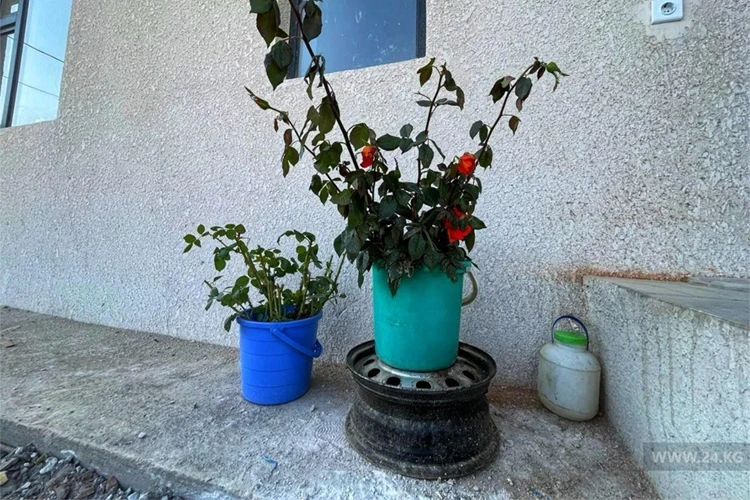
She says that local residents wanted to transport their houses in the form of building materials to construct utility blocks at the new location, but the authorities did not allow it. The village currently has empty land and a house. Usually, in villages, everyone has an extension, and several generations live in the house.
"Everything was left to the Tajiks," the woman adds bitterly.
Who will pay for the harvest that fed families?
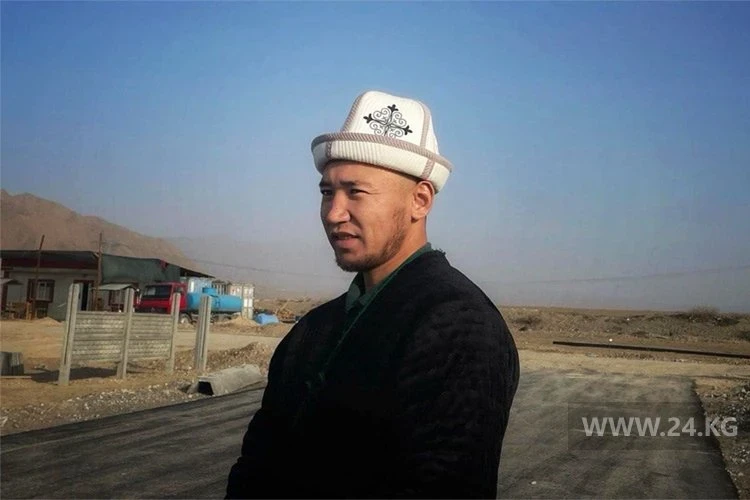
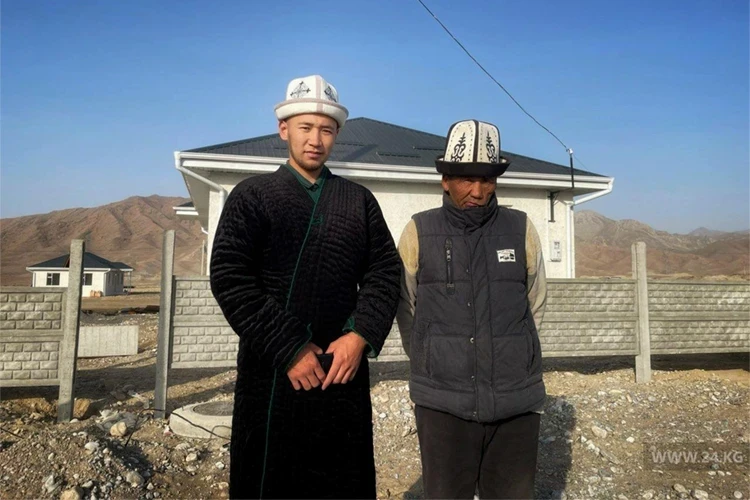
There are few people on the streets of the village, but a lot of machinery and piles of sand and stones. Two men in traditional ak-kalpak hats with worried faces inspect a house. The younger of them, Turkbai, is more talkative: "We are from Orto-Boza. Two families live in one house — parents and I with my wife. In our house, which we left, there were 16 acres, 7 rooms, and a vegetable garden. It is difficult here, two families in one house. We wrote a statement to the akim, waiting for a response. We were given 10 acres, while the residents of Dostuk were given 20. They say they will add later. I used to work in a mosque, there is none here, but they promise to build one. We are starting life anew, for now, we live on the parents' pension. Many have lost their jobs."
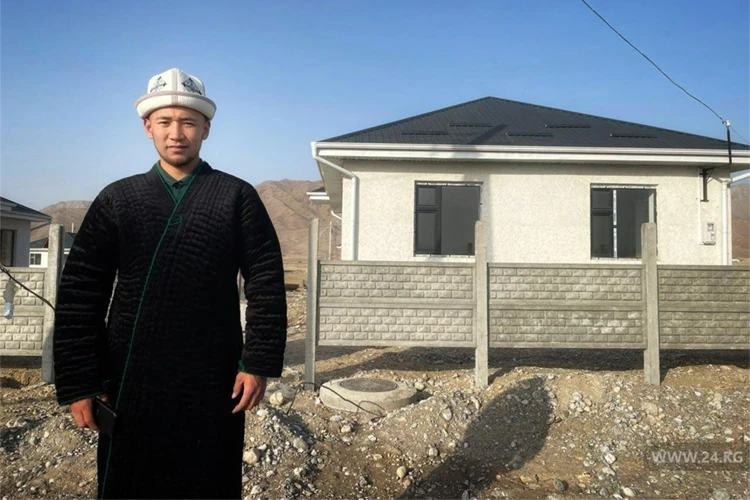
He speaks calmly, but his gaze is tired: "We wanted to dismantle the old houses for building materials — they did not allow it. They promised to compensate for the harvest from 100 to 400 thousand soms per year. But for this, our labor needs to be taken into account: to grow an apricot that will bear fruit takes 10-15 years. There will be no harvest for the next 10 years, the losses during this time will amount to at least 2 million soms. Therefore, when the authorities calculate compensations, we hope that all this will be taken into account. There is discontent among the population — compensations have not yet been issued. Autumn is the best time to prepare the land for planting, and it is rocky; we do not know how to plant or what can be planted. For this, funds are needed."
"Zhiguli," firewood, and cucumbers
The men share that one neighbor in the old village left behind "Zhiguli," which he was repairing but could not take away. Now he is worried: "For someone, this is old junk, but for us, simple people, it is a means of transportation and help in the household. Some have firewood left, but how will we heat here in winter? We have to buy again, and the compensations are still not here," the locals add.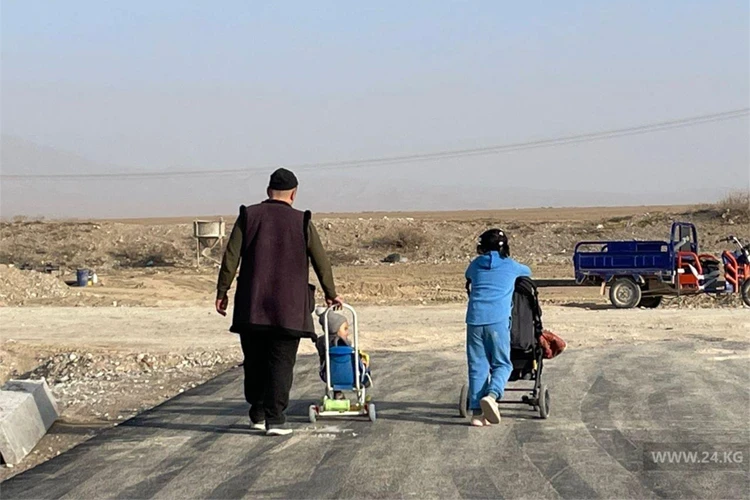
Houses in Zhany Dostuk are built neatly, with indoor amenities and heating. For now, there is emptiness around. The soil is rocky, and the vegetable gardens are not ready. People are asking for black soil to be brought in, permission to set up utility blocks, temporary exemption from utility payments, and help with coal.
“Give us a year to get on our feet. Don’t charge us for electricity at least.”
Residents of the village Zhany Dostuk
“We do not know the plans of the authorities. They do not tell us such things. Whenever neighbors gather, they discuss that the compensation is possibly 1 million, but what will it be enough for? We need to build fences and extensions, and the million is already gone. And how to restore life further: vegetable garden, soil preparation, planting, and so on? There are large families here. People hoped for the harvest: apricots and apples were the main income. We had fertile lands, planted potatoes, cucumbers, enough for ourselves, we didn’t buy,” the men recount.
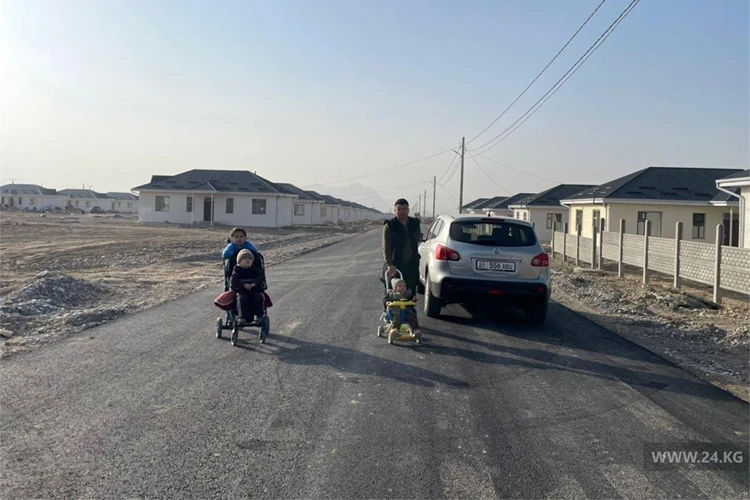
The price of compromise: what was lost and what was gained
The resettlement of the residents of the village of Dostuk to Zhany Dostuk was the result of the exchange of territories between Kyrgyzstan and Tajikistan.The head of the State National Security Committee, Kamchybek Tashiev, presented a detailed report on the deal in his speech on February 27 in parliament.
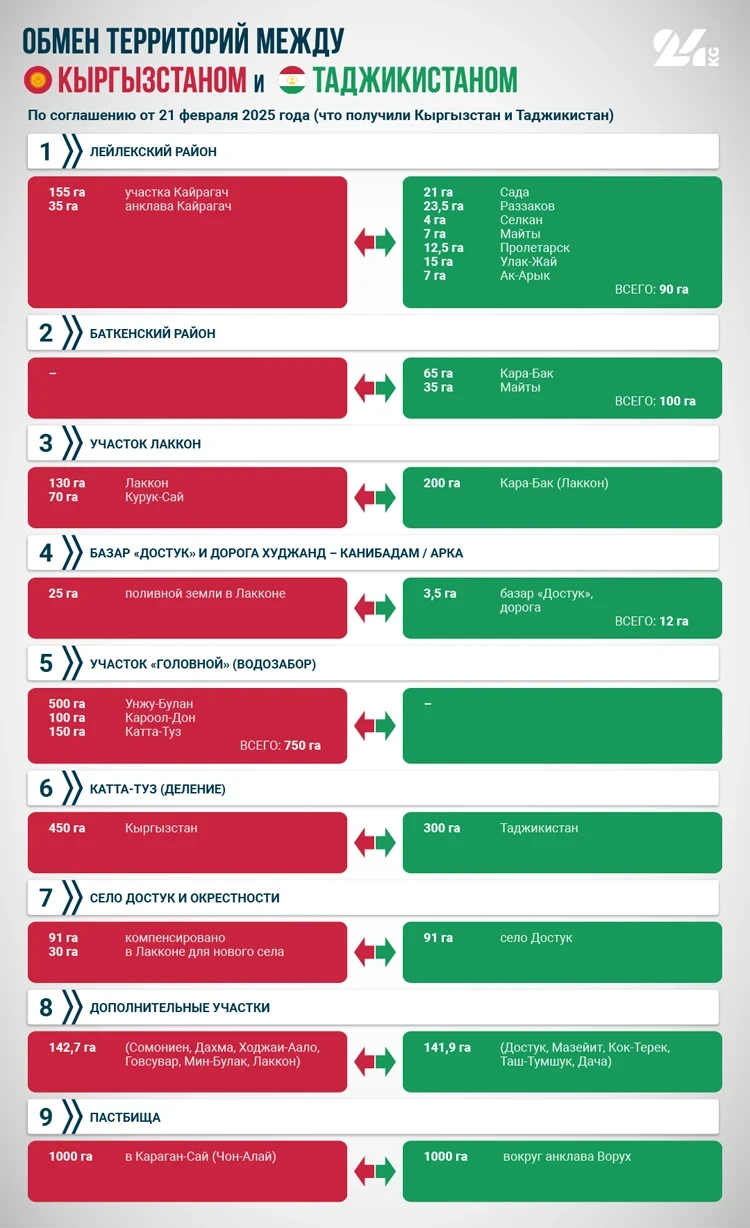
Thus, the state fulfilled its obligations by building new houses. However, residents still have questions and requests for fair compensation.
The main problem for the displaced is not the quality of the new houses, but economic adaptation.
At the site of the future school, children play tag, laugh, and shout. And in this, the main thing is manifested — peace has returned, even if not to the place where their parents were born.
The authorities' position: resettlement as planned, social facilities will be completed
The akim of the Batken region, Danir Imanaliev, told 24.kg, about the progress of the resettlement and the arrangement of residents. He noted that this is not just a story about the village of Dostuk. A total of 181 families moved to the new location, including from the western zone of Batken — Teskey, Mazeyit, Tash-Tumshuk, Kok-Terek, Uch-Dobo — from territories that fell into the exchange zone between Kyrgyzstan and Tajikistan.The total number of displaced persons exceeds one thousand.
“Residents of Dostuk received 20 acres, while others received 10, as additional plots are being considered for them in another location. We are trying to resolve emerging issues promptly, mainly everyday ones,” emphasized Danir Imanaliev. — “Of course, there were cases of discontent, as people leave their homes, but overall they understand the situation.”
According to him, a school for 225 places, a kindergarten for 100 places, a medical and obstetric point, a mosque, playgrounds, and public transport will be built in the new village.
Social facilities are planned to be completed by 2026.
“We will restore the lands for agriculture for the displaced. We are currently assessing the losses resulting from the exchange of territories. Each family will receive monetary compensation for the lost plots and utility facilities,” he added.
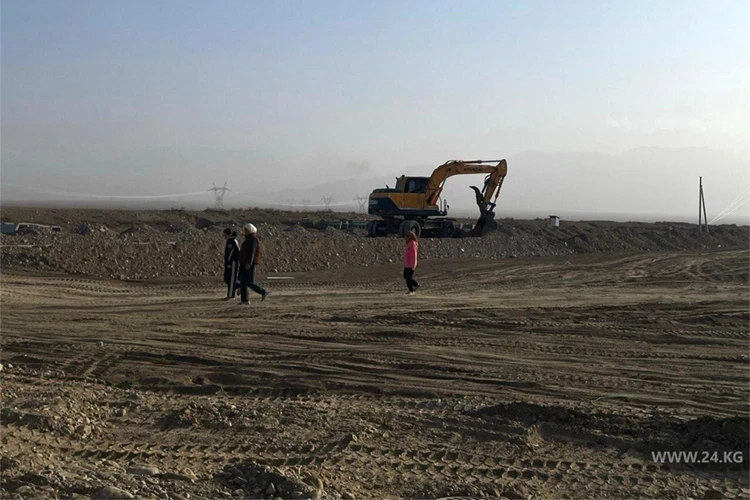
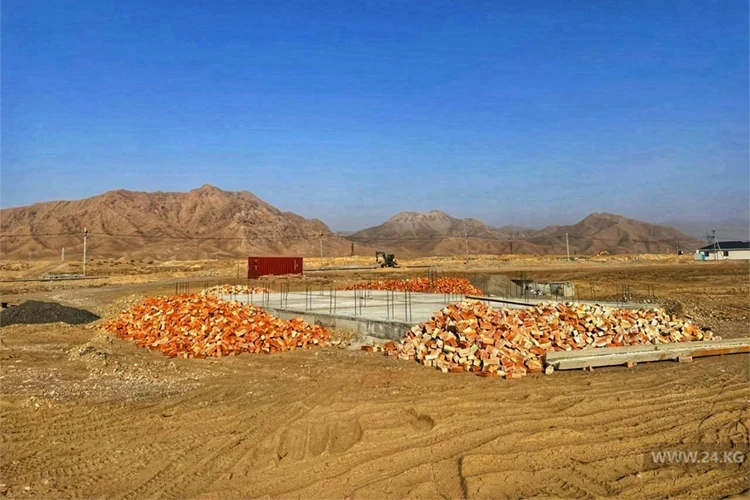
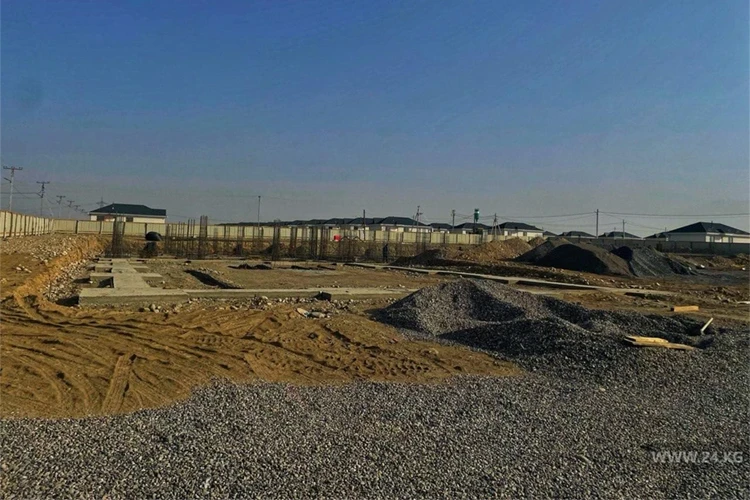
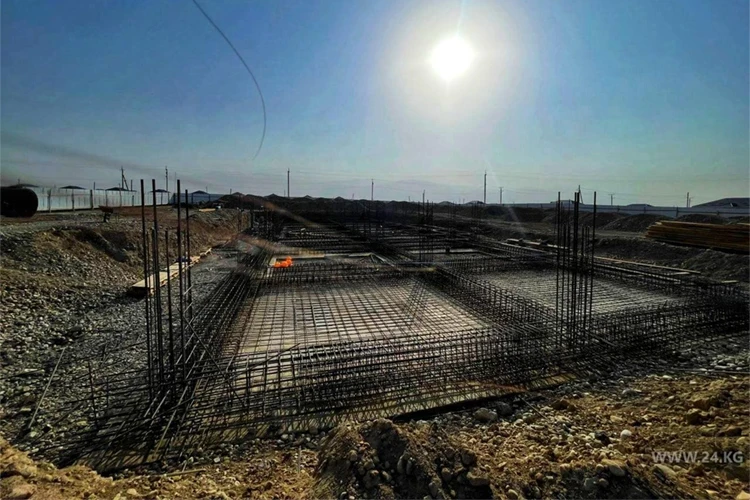
"The Kyrgyz and Tajik sides agreed in advance that the dismantling of houses in the abandoned villages would not take place," emphasized Danir Imanaliev.
He added that the regional and district administration meets daily with the residents of the new village to promptly address emerging issues.
